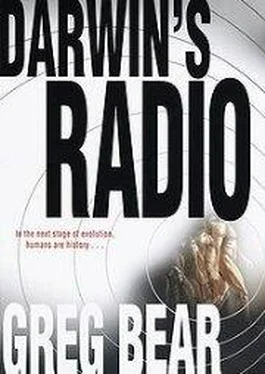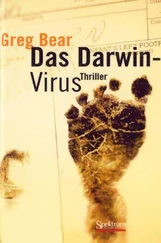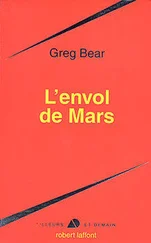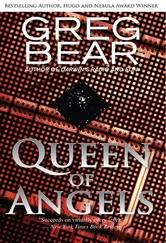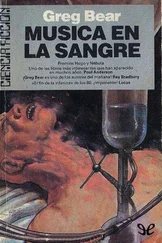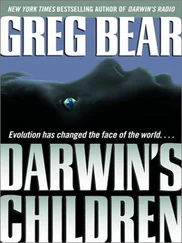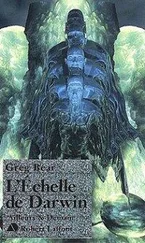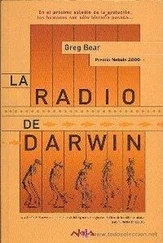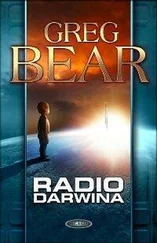“Yes,” Dicken said. His heart felt funny. He was short of breath. “I’d like to have a few picks of my own.”
“Not a whole army, I hope.”
“Not at first,” Dicken said.
“I need a team” Augustine said, “not a loose bunch of fief-doms. No prima donnas.”
Dicken smiled. “A few divas?”
“If they sing in key. ‘Star Spangled Banner’ time. I want a background check for any sort of bad smell. Martha and Karen in human resources can arrange that for us. No flag burners, no hotheads. No fringies.”
“Of course,” Dicken said. “But that would leave me out.”
“Boy genius.” Augustine wet his finger and made a mark in the air. “I’m allowed just one. Government issue. Be in my office at six. Bring some Pepsi and Dixie cups and a tub of ice from the labs, clean ice, okay?”
Three moving vans stood outside the front entrance of EcoBacter as Kaye parked her car. She walked past two men dollying a stainless-steel lab refrigerator past the reception desk. Another hefted a microplate counter, and behind him, a fourth carried the body of a PC. EcoBacter was being nibbled to death by ants.
Not that it mattered. It had no blood left anyway.
She went to her office, which had not been touched yet, and closed the door forcefully behind her. Sitting in the blue office chair — worth about two hundred bucks, very comfortable — she switched on her desktop computer and logged in to her account on the International Association of Biotech Firms job board. What her agent in Boston had told her was true. At least fourteen universities and seven companies were interested in her services. She scrolled through the offers. Tenure track, start and ran a small virology research lab in New Hampshire…professor of biological science at a private college in California, a Christian school, Southern Baptist…
She smiled. An offer from UCLA School of Medicine to work with an established professor of genetics — unnamed — in a research group focusing on inherited diseases and their connection with provirus activation. She marked that one.
After fifteen minutes, she leaned back and rubbed her forehead dramatically. She had always hated looking for work. But she could not let her momentum be diverted; she had not won any prizes yet, might not for years to come. It was time to take charge of her life and move out of the shallows.
She had marked three of the twenty-one offers as worth looking into, and already she was exhausted, her armpits wet with sweat.
With a sense of foreboding, she checked her e-mail. It was there that she found a curt message from Christopher Dicken at the NCID. His name sounded familiar; then she remembered, and swore at the monitor, the message it bore, the way her life was going, the whole ugly ball of wax.
Debra Kirn knocked on the transparent glass of the door to her office. Kaye swore again, very loudly, and Kim peeked in, eyebrows arched.
“You yelling at me?” she asked innocently.
“I’ve been asked to join a team at the CDC,” Kaye said, and slammed her hand on the desk.
“Government work. Great health plan. Freedom to do your own research on your own schedule.”
“Saul hated working in a government lab.”
“Saul was a rugged individualist,” Kim said, and sat on the edge of Kaye’s desk. “They’re cleaning out my equipment now. I figure there’s nothing left forme to do here. I’ve got my photos and disks and…Christ, Kaye.”
Kaye stood up and hugged her as Kim broke into sobs. “I don’t know what I’ll do with the mice. Ten thousand dollars worth of mice!”
“We’ll find a lab that will hold them for you.”
“How can we transport them? They’re full of Vibrio\ I’ll have to sacrifice them here before they take away the sterilization equipment and the incinerator.”
“What do the AKS people say?”
“They’re going to leave them in the containment room. They won’t do anything.”
“That’s unbelievable.”
“They say they’re my patents, they’re my problem.”
Kaye sat again, then thumbed through her Rolodex, hoping for inspiration, but it was a futile gesture. Kim had no doubt she would find work in a month or two, even be able to carry on with her research using SCID mice. But they would have to be new mice, and she might lose six months or a year of her time.
“I don’t know what to tell you,” Kaye said, her voice cracking. She held up her hands, helpless.
Kim thanked Kaye — though for what, Kaye hardly knew. They hugged again, and Kim left.
There was little or nothing she could do for Debra Kim or any of the other ex-employees of EcoBacter. Kaye knew she had been as much a part of this disaster as Saul, as responsible for it through her own ignorance. She hated fund-raising, hated finances, hated looking for jobs. Was there anything practical in this world that she did like to do?
She reread Dicken’s message. She had to find some way to get her wind back, get on her feet, join the race again. A short-term government job might be just what she needed. She could not imagine why Christopher Dicken would want her; she barely remembered the short, plumpish man in Georgia.
Using her cell phone — the lab phone lines had been disconnected — Kaye called Dicken’s number in Atlanta.
”We have test results from forty-two hospitals around the country,” Augustine said to the president of the United States. “All instances of mutation and subsequent rejection of fetuses, of the type we are studying, have been positively associated with the presence of Herod’s flu.”
The president sat at the head of the large polished maple table in the Situation Room in the White House. Tall and portly, his curly head of white hair stood out like a beacon. He had been affectionately dubbed “Q-Tip” during his campaign, converting a derogatory term used by younger women to describe older men into an expression of pride and affection. Flanking him were the vice president; the Speaker of the House, a Democrat; the Senate majority leader, a Republican; Dr. Kirby; Shawbeck; the secretary of Health and Human Services; Augustine; three presidential aides, including the chief of staff; the White House liaison for public health issues; and a number of people Dicken couldn’t identify. It was a very big table, and three hours had been set aside for their discussion.
Dicken had surrendered his cell phone, pager, and palmtop at the security check point before entering, as had all the others. An exploding “cell phone” on a tourist had caused considerable damage in the White House just two weeks before.
He was a little disappointed by the nature of the Situation Room — no state-of-the-art wall screens, computer consoles, threat boards. Just a large, ordinary room with a big table and lots of telephones. Still, the president was listening intently.
“SHEVA is the first confirmed instance of human-to-human transmission of endogenous retrpviruses,” Augustine continued. “Herod’s flu is caused by SHEVA, beyond any shadow of a doubt. In my career in medicine and science, I have never seen anything quite so virulent. If a woman is in the early stages of pregnancy and contracts Herod’s, her fetus — her baby — will eventually abort. Our statistics show a possibility of over ten thousand miscarriages that can already be attributed to this virus. According to our present information, men are the only source of Herod’s flu.”
“Horrible name, that,” the president said.
“An effective name, Mr. President,” Dr. Kirby said.
“Horrible and effective,” the president conceded.
“We do not know what causes expression in males,” Augustine said, “though we suspect some sort of pheromone triggering process, perhaps from female partners. We haven’t a clue how to stop it.” He handed sheets of paper around the table. “Our statisticians tell us that we could see more than two million cases of Herod’s flu in the next year. Two million possible miscarriages.”
Читать дальше
Конец ознакомительного отрывка
Купить книгу
